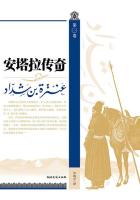Suicide.
England is the paradise of the rich, the purgatory of the wise, and the hell of the poor.
-THEODORE PARKER.
WITH LIFE SO PRECARIOUS, AND opportunity for the happiness of life so remote, it is inevitable that life shall be cheap and suicide common.So common is it, that one cannot pick up a daily paper without running across it; while an attempt-at-suicide case in a police court excites no more interest than an ordinary 'drunk,' and is handled with the same rapidity and unconcern.
I remember such a case in the Thames Police Court.I pride myself that I have good eyes and ears, and a fair working knowledge of men and things; but I confess, as I stood in that courtroom, that I was half-bewildered by the amazing despatch with which drunks, disorderlies, vagrants, brawlers, wife-beaters, thieves, fences, gamblers, and women of the street went through the machine of justice.
The dock stood in the centre of the court (where the light is best), and into it and out again stepped men, women, and children, in a stream as steady as the stream of sentences which fell from the magistrate's lips.
I was still pondering over a consumptive 'fence' who had pleaded inability to work and necessity for supporting wife and children, and who had received a year at hard labor, when a young boy of about twenty appeared in the dock.'Alfred Freeman.' I caught his name, but failed to catch the charge.A stout and motherly-looking woman bobbed up in the witness-box and began her testimony.Wife of the Britannia lock-keeper, I learned she was.Time, night; a splash; she ran to the lock and found the prisoner in the water.
I flashed my gaze from her to him.So that was the charge, self-murder.He stood there dazed and unheeding, his bonny brown hair rumpled down his forehead, his face haggard and care-worn and boyish still.
'Yes, sir,' the lock-keeper's wife was saying.'As fast as Ipulled to get 'im out, 'e crawled back.Then I called for 'elp, and some workmen 'appened along, and we got 'im out and turned 'im over to the constable.'
The magistrate complimented the woman on her muscular powers, and the courtroom laughed; but all I could see was a boy on the threshold of life, passionately crawling to muddy death, and there was no laughter in it.
A man was now in the witness-box, testifying to the boy's good character and giving extenuating evidence.He was the boy's foreman, or had been, Alfred was a good boy, but he had had lots of trouble at home, money matters.And then his mother was sick.He was given to worrying, and he worried over it till he laid himself out and wasn't fit for work.He (the foreman), for the sake of his own reputation, the boy's work being bad, had been forced to ask him to resign.
'Anything to say?' the magistrate demanded abruptly.
The boy in the dock mumbled something indistinctly.He was still dazed.
'What does he say, constable?' the magistrate asked impatiently.
The stalwart man in blue bent his ear to the prisoner's lips, and then replied loudly, 'He says he's very sorry, your Worship.'
'Remanded,' said his Worship; and the next case was under way, the first witness already engaged in taking the oath.The boy, dazed and unheeding, passed out with the jailer.That was all, five minutes from start to finish; and two hulking brutes in the dock were trying strenuously to shift the responsibility of the possession of a stolen fishing-pole, worth probably ten cents.
The chief trouble with these poor folk is that they do not know how to commit suicide, and usually have to make two or three attempts before they succeed.This, very naturally, is a horrid nuisance to the constables and magistrates, and gives them no end of trouble.Sometimes, however, the magistrates are frankly outspoken about the matter, and censure the prisoners for the slackness of their attempts.For instance, Mr.R.Sykes, chairman of Stalybridge magistrates, in the case the other day of Ann Wood, who tried to make away with herself in the canal: 'If you wanted to do it, why didn't you do it and get it done with?' demanded the indignant Mr.
Sykes.'Why did you not get under the water and make an end of it, instead of giving us all this trouble and bother?'
Poverty, misery, and fear of the workhouse, are the principal causes of suicide among the working classes.'I'll drown myself before I go into the workhouse,' said Ellen Hughes Hunt, aged fifty-two.Last Wednesday they held an inquest on her body at Shoreditch.Her husband came from the Islington Workhouse to testify.He had been a cheesemonger, but failure in business and poverty had driven him into the workhouse, whither his wife had refused to accompany him.
She was last seen at one in the morning.Three hours later her hat and jacket were found on the towing path by the Regent's Canal, and later her body was fished from the water.Verdict: Suicide during temporary insanity.
Such verdicts are crimes against truth.The Law is a lie, and through it men lie most shamelessly.For instance, a disgraced woman, forsaken and spat upon by kith and kin, doses herself and her baby with laudanum.The baby dies; but she pulls through after a few weeks in hospital, is charged with murder, convicted, and sentenced to ten years' penal servitude.Recovering, the Law holds her responsible for her actions; yet, had she died, the same Law would have rendered a verdict of temporary insanity.
Now, considering the case of Ellen Hughes Hunt, it is as fair and logical to say that her husband was suffering from temporary insanity when he went into the Islington Workhouse, as it is to say that she was suffering from temporary insanity when she went into the Regent's Canal.As to which is the preferable sojourning place is a matter of opinion, of intellectual judgment.I, for one, from what I know of canals and workhouses, should choose the canal, were I in a similar position.And I make bold to contend that I am no more insane than Ellen Hughes Hunt, her husband, and the rest of the human herd.















